Category: Share This Post
blogs in this category are shared to Facebook Twitter and e-mail
Bad Breath Causes, Treatment and Prevention
Do you brush ‘Gangnam Style’?
Changing old fillings
Mouth Ulcers – causes, treatment and symptoms
Mouth Ulcers
Mouth ulcers are small painful sores that form in the mouth. The most common type is called aphthous or simple ulcers.
There are three main types of ulcers: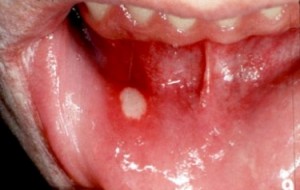
- Minor ulcers are small, non-scarring and usually heal without any treatment within two weeks.
- Major ulcers are 1cm or larger, have a raised border and can last from two weeks to several months. Usually only one or two appear at a time. They can be very painful and cause difficulty eating, are slower to heal and can leave scars.
- Herpetiform ulcers are multiple tiny sores that can be very painful, particularly if they fuse together to form one larger sore. They can last from one week to two months.
Who’s at risk from ulcers?
Most people have at least one attack of mouth ulcers in their lifetime, but mouth ulcers are more common in women and those under the age of 40. Up to one in five people have repeated attacks of mouth ulcers.
More than a third of people with recurrent mouth ulcers have a family history of it. This figure rises to over 80% if both parents get frequent mouth ulcers.
What causes mouth ulcers?
Minor mouth ulcers are usually caused by:
- Damage to the inside lining of your mouth by very hot or acidic food or drink
- Biting your inner cheeks
- Brushing your teeth and gums very hard
- Poorly fitted dentures or orthodontic appliances (braces)
- A very dry mouth due to a medical condition
- Eating food to which you are allergic
- Trauma from food like crusty bread and crisps
- Stress, or lacking vitamins or minerals
- Certain medications
Certain medical conditions can also make mouth ulcers more likely, such as:
- Vitamin B12 deficiency
- Viral infections
- Iron deficiency
- Celiac disease ( intolerance to a protein called gluten )
- Crohn’s disease
- HIV infection
What are the symptoms?
Most mouth ulcers are easy to spot because they are round or oval in shape, whitish in colour and inflamed around the edge.
They are usually seen on the inside of the lips and cheeks, on the floor of the mouth and under the tongue.
Treatment of mouth ulcers
Most mouth ulcers do not need specific treatment and heal naturally without medication. Mouth ulcers usually heal within 7 – 14 days, however treatment can help to numb the pain, protect the ulcer from further damage and decrease the chances of a bacterial infection. Some medicines may also speed up the healing if used early.
In a very small number of cases, ulcers may be a sign of mouth cancer. The recovery rate for mouth cancer is good if spotted early enough, so you should get any persistent mouth ulcers checked out and have regular check-ups with your dentist. We offer a mouth cancer screening service, if you are concerned or interested please do contact us.
Dental Erosion and Tooth Wear – What can you do?
What is dental erosion?
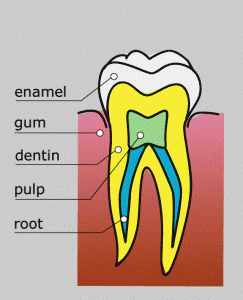 Erosion is the loss of tooth enamel caused by acid attack. Enamel is the hard, protective coating of the tooth, which protects the sensitive dentine underneath. When the enamel is worn away, the dentine underneath is exposed, which may lead to pain and sensitivity.
Erosion is the loss of tooth enamel caused by acid attack. Enamel is the hard, protective coating of the tooth, which protects the sensitive dentine underneath. When the enamel is worn away, the dentine underneath is exposed, which may lead to pain and sensitivity.
Dental erosion, also known as tooth erosion, is the largely preventable yet irreversible damage to tooth structure due from exposure of acids through food or drink, or from sometimes chronic medical conditions that are not dental related. It has only been recently, that tooth erosion has been recognized as a dental health problem despite it being commonly present especially among children and teenagers.
Tooth Wear & Erosion Causes
Most often, tooth erosion is caused by consumption of acidic foods and drinks – typically those which have a ph that is below 5.7. Sodas and other carbonated drinks, including those that are diet or un-caffeinated, are a frequent culprit along with fruit juices, especially those that contain citrus.
With dental erosion, the damage is caused by citric and phosphoric acids.

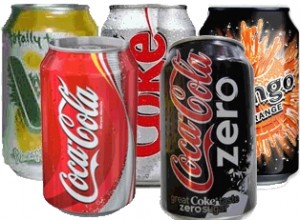
Saliva is designed to act as a buffer that regulates the impact of acidic drinks that have been consumed but some drinks have a resistance to the effect. Research has concluded that fruit juices are the most resistance to saliva benefits.
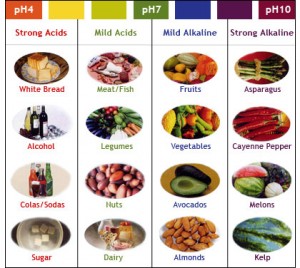 Other drinks include:
Other drinks include:
- Fruit based carbonated drinks
- Flavoured mineral waters
- Other carbonated drinks such as sodas and mineral water
- Some medications such as vitamin c.
Conditions such as acid reflux, heartburn, indigestion and more serious medical problems like anorexia and bulimia can also contribute to tooth erosion.
Symptoms of tooth erosion
- Discolouration – Since the dentine of the tooth is exposed during tooth erosion, discolouration or yellowing of the teeth can occur. The more dentine that is exposed, the more yellow the teeth will become.
- Tooth Sensitivity – Sensitive teeth are very common symptoms of tooth erosion because the enamel that protects the teeth wears away, leaving exposed dentine.
- Rounded teeth – During the early stages of tooth erosion, it is common for teeth to have a rounded look.
- Transparent or sand blasted appearance – It is not uncommon in the early stages of tooth erosion for the teeth to have a sand blasted look or for the tips of the front teeth to look transparent.
- Cracking – If tooth erosion continues into the advanced stage, the edges of the teeth can start to crack and have a rough feeling.
- Dents – Little dents can start to appear on the biting areas on the teeth.
- Extreme sensitivity – The teeth can become extremely sensitive during the advanced stage of tooth erosion.
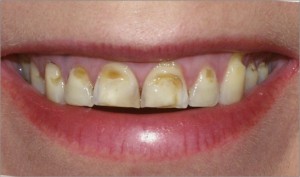
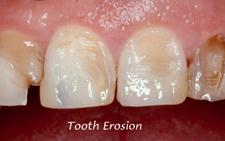
Treatment of tooth wear
Consult a dentist about treatment options to restore enamel. Your treatment will depend on the level of erosion and presence of cavities, and can include crowns, composite fillings or veneers.
- Crowns can be used to cap the teeth and restore them to their original shape.
- Veneers cover eroded, cracked, broken or chipped teeth and help prevent further erosion.
- Composite fillings can be used to repair cavities, which contribute to tooth erosion. These fillings are designed to smooth out surfaces and decrease tooth sensitivity.
How can you protect tooth enamel from erosion?
Good dental care can help prevent tooth enamel from erosion.
- Cut down on acidic drinks and foods, such as carbonated drinks and citrus fruit juices. If you do drink them, do so at meal times to minimise their effects on the enamel.
- Rinse your mouth with water right after having acidic foods or drinks.
- Drink fizzy drinks and fruit juices with a straw which helps acids to bypass the teeth.
- Finish a meal with a glass of milk or a piece of cheese to neutralise acids.
- Chew sugar free gum with xylitol, which helps neutralise acids from foods and drinks.
- Drink more water during the day if you have a dry mouth or low saliva problems.
- Use a soft toothbrush and avoid brushing too vigorously.
- Wait for at least 30 minutes to brush teeth after they have been exposed to acids in foods or drinks. Acid leaves the enamel softened and more prone to erosion during brushing.
Use fluoride toothpaste to strengthen your teeth against decay.
You should have your teeth checked regularly by your dentist to prevent the need for tooth enamel restoration. When dental erosion is caught early, your dentist is able to suggest treatment that may prevent further erosion or tooth decay.
Blue Court Dental Centre in Harrow offers a range of dental hygiene preventive treatments to help you keep your teeth for life.
I want to change the colour of my teeth
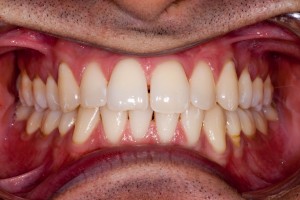
This patient wanted to improve his smile by changing his discoloured teeth to a brighter natural white. To achieve this result, the teeth were bleached using the home whitening system. This is a highly effective way of lightening the natural colour of the teeth without removing any of the ttoth surface.
The treatment took approximately 2 weeks, leaving the patient delighted with the end result.
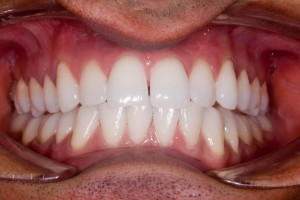
Composite Bonding to change a funny shaped tooth
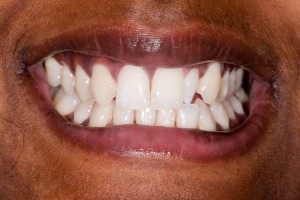
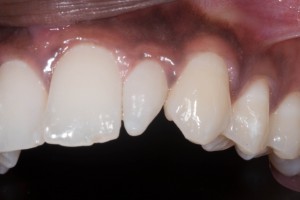
This young lady did not like the shape and appearance of her peg tooth, as it was very visible when she smiled . She was going away and wanted something done as quickly as possible.
We decided to do some composite bonding, as this was the quickest and least destructive option to achieve the desired effect.
A tooth coloured composite material was used to change the shape and appearance of her tooth and the colour was matched to make her new tooth look as natural as possible. She is now able to smile with confidence.
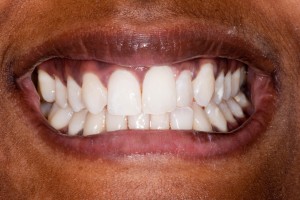

The patient was very happy with her new tooth.
British Academy of Cosmetic Dentistry – Dr Dixit is Elected to the Board
We’re proud to announce that Dr Nishan Dixit has recently been elected to the board of the British Academy of Cosmetic Dentistry (BACD).
This is a great achievement and as a practice we’re very proud of this… so what does it mean for you as a patient?
Here’s what this new opportunity for Dr Dixit uncovers:
- Thought leadership – the British Academy of Cosmetic Dentistry recognises leaders in the field of cosmetic dentistry and invites them to the board to assist them in the development of cosmetic dentistry in the UK
- The BACD offers unparalleled training and education for dentists offering cosmetic dentistry, board membership means Dr Dixit is part of this education process
- Board membership of the BACD is recognition of the time and dedication Dr Dixit puts into the field of cosmetic dentistry
- A community of innovative positive-thinkers – Dr Dixit will meet, socialise and network with like-minded professionals allowing him to continue to develop his cosmetic dentistry skills
- BACD membership grants access for Dr Dixit to the best International Speakers in the field of cosmetic dentistry
- The BACD develops a team approach ensuring Dr Dixit is able to work with key dental team members to provide the highest quality cosmetic dentistry
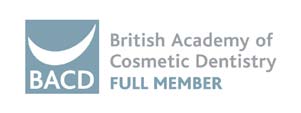 As will know Blue Court Dental Centre offers a wide range of cosmetic dentistry options for the people around the Harrow, Middlesex area. Including treatments for dark, missing, crooked and unsightly teeth. The extra dimensional that is so important for any dental practice to offer is the combination of cosmetic dentistry with oral health. By combining both of these disciplines you as a patient end up with the best looking and most healthy teeth for life.
As will know Blue Court Dental Centre offers a wide range of cosmetic dentistry options for the people around the Harrow, Middlesex area. Including treatments for dark, missing, crooked and unsightly teeth. The extra dimensional that is so important for any dental practice to offer is the combination of cosmetic dentistry with oral health. By combining both of these disciplines you as a patient end up with the best looking and most healthy teeth for life.
Always a good thing, don’t you agree?
Mouth Cancer Awareness Week – Have you Been Checked?
This week (11th-17th November) is Mouth Cancer Awareness Week.
What is mouth cancer?
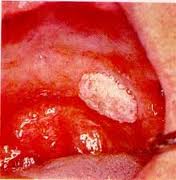 Mouth cancer is caused by an abnormal and uncontrolled growth of cells. It is a malignant growth that can occur in any part of the mouth. The Two most common symptoms of mouth cancer are:
Mouth cancer is caused by an abnormal and uncontrolled growth of cells. It is a malignant growth that can occur in any part of the mouth. The Two most common symptoms of mouth cancer are:
• an ulcer in your mouth or on your lip that won’t heal
• constant discomfort or pain in your mouth
Other symptoms can include:
• red or white patches in your mouth
• a lump on your lip, tongue or in your neck
• bad breath
• unexplained bleeding in your mouth
• numbness in your mouth
• loose teeth
• problems chewing or swallowing, difficulty moving your jaw or a feeling that something is caught in your throat
• changes to your voice – it may sound husky or quieter or you may slur your words
• weight loss because of problems swallowing
The BBC have more information about identifying oral cancer on their website.
Who is most at risk?
Nearly 6,236 people are diagnosed with mouth cancer every year in the UK. Just under half (44 per cent) of all mouth cancer cases were diagnosed in people aged 65 and over, with more than a quarter (25 per cent) diagnosed in the under 55s. Although the gap has significantly diminished over time, men are still twice more likely to develop mouth cancer than women.
Risk Factors
Smoking – Still considered to be the leading cause of mouth cancer in the UK, tobacco use transforms saliva into a deadly cocktail that damages cells in the mouth and can turn them cancerous. Advice on giving up smoking is here.
Chewing tobacco – Smokeless tobacco such as betel quid, gutkha and paan, is normally defined as any tobacco product that is placed in the mouth or nose and not burned. Smokeless tobacco is used particularly by south Asian communities. Other parts of Asian communities are also more at risk from the effects of smokeless tobacco including people of Bangladeshi origin.
High alcohol consumption– People who smoke and drink to excess are up to 30 times more likely to develop mouth cancer, as alcohol aids the absorption of tobacco into the mouth. Drinking to excess can increase the risk of developing mouth cancer by four times.
Have a weakened immune system – People who have HIV/AIDS, or who are taking medicines that suppress the immune system, are more likely to develop mouth cancer.
Poor diet – It is recommended that people eat a healthy, balanced diet that includes many vitamins and minerals.


The earlier mouth cancer is diagnosed, the better the chances of recovery. Your dentist may spot mouth cancer in its early stages during a routine examination, so it’s important to visit your dentist regularly.
More information about Oral Cancer is Here. And there’s our own tips on oral cancer prevention on our own website.
Blue Court Dental Care in Harrow always check for early signs of oral cancer. Please book your health check appointment today.

